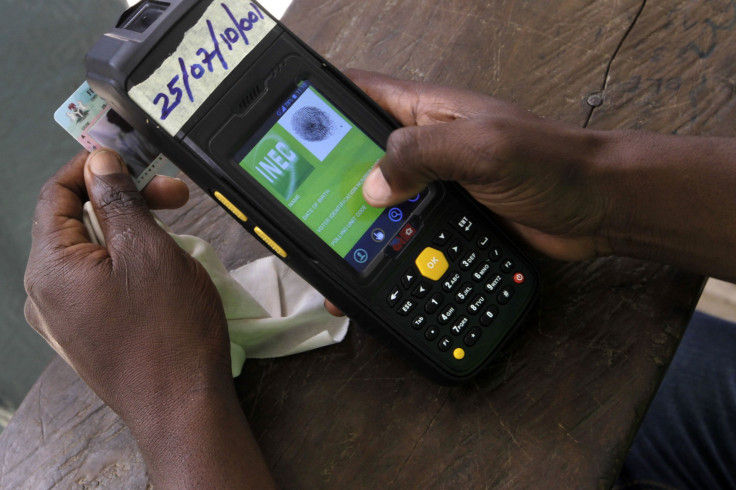Nigeria Elections 2015: Will Card Readers Work? Electoral Commission Responds To Concerns Over Voter Disenfranchisement, Delays

Fears were mounting this week in Nigeria about whether polling places' voter card readers would work correctly during Saturday's presidential election. Several politicians had expressed concern that mechanical malfunctions could lead to disenfranchisement, but the Independent National Electoral Commission promised stakeholders Tuesday that the card readers would not fail.
"I want to assure all prospective voters in Ebonyi that no person with Permanent Voter Card (PVC) will be denied the opportunity to vote," said resident electoral commissioner Lawrence Azubuike, according to Vanguard. "Once the PVC is verified and certified correct, even if the authentication of the voter's fingerprint does not go through, the voter will still go ahead to vote."
The card readers are being used in an effort to prevent election rigging and fraud, the Guardian reported. Some of the backlash comes from a fear of hacking or a misunderstanding of what the card readers actually do -- verify identity, not vote for someone. Others worried about the amount of time it would take to check each voter. But the biggest fear seemed to be that the card readers, which haven't been used in a major election before, simply wouldn't work. This could affect up to half of the polling places in Nigeria, Onwubuya Breakforth, of the National Secretary of the Advanced Congress of Democrats, said.
When the electoral commission demonstrated the process before the Senate in February, the card readers couldn't read the thumbprints of at least two senators, according to the Tribune. The card readers were also criticized for delaying some voting earlier this month in a mock election.
"Our position on the card reader remains that the machine has not been tested in any election, and there are bases for genuine concern over the use of the machine, for the first time, in a crucial election of this magnitude," Peoples Democratic Party spokesman Femi Fani-Kayode said in a statement.
© Copyright IBTimes 2024. All rights reserved.






















